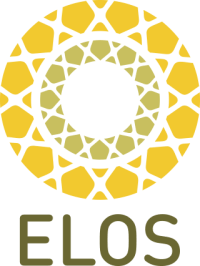This article was translated by Antonio Oliveira, a volunteer participant in the Translation Community at Instituto Elos.
Read it in Portuguese here.
Read it in Spanish here.
An unpublished research conducted by Instituto Elos reveals that 65% of the leaders connected to our work in Baixada Santista dedicate themselves daily to work in their territories. Additionally, 52% of the interviewed leaders do not receive professional psychological support. Considering this, we organized opportunities for exchange on the topic of mental health with partner territories. That’s what happened in Vila Esperança on June 24.
As you already know, Instituto Elos worked with residents in Vila Esperança over the last year, strengthening the development of collective dreams of transformation. One of the outcomes of this work was the renovation of the headquarters of the De Bem com Mangue Association. You can read the full story here. This time, the local leaders welcomed the group from “Mental Health and Care – sociocultural, ethical, and political aspects,” an extension project from the Federal University of São Paulo – UNIFESP.
The group of students got to know the new space and learned more about the activities planned for the second semester. One of the exchanges took place with Francisca, a young writer from Vila Esperança. She is only 10 years old and has just released her first book.
The extension project seeks to promote spaces for exchange and discussions with territorial leaders about the practice of care in various layers of life. This theme is even more urgent for those who take care of so many others, such as community leaders. For this reason, they gathered the people in a circle and sought to name the topic based on the experiences and lived realities present there.
Juliana Gomides, one of the team members who closely accompanied Vila Esperança in recent months, summarizes one of the significant learnings of the day: “The conversation was incredible, and we realized that, in practice, caring here means living in community,” she says.
“The experience of getting to know the space and the different areas of action was incredible, enriching, and inspiring,” says Luiza Escardovelli, a student who is part of the extension group. She was particularly moved by something she heard amidst the ongoing conversations.
“One of the participants in the circle shared a phrase that is still echoing in me: ‘We are families that take care of families.’ This showed me the common and strengthened power of communities,” she reveals. Luiz also celebrates the presence of children throughout the meeting, as they, too, have to deal with many things at the same time. The meeting ended with a beautiful feijoada, shared by all the people in the circle.
Every year, at the end of each GSA Program, Instituto Elos provides follow-up and support to the territories that host the program. With an average duration of one year, during this time, local leaders have regular meetings with institutional facilitators who support various challenges.

